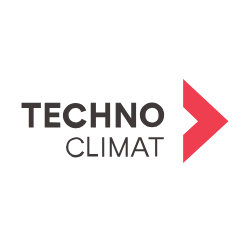
Open
ÉcoPerformance — Implementation of large industrial projects
Last Update: March 4, 2026
QC, Canada
Financial support for large-scale industrial projects
Grant and Funding
At a glance
Funding available
Financing goals
Reduce the ecological footprint
Eligible Funding
- Up to 75% of project cost
Timeline
- Unspecified
Eligible candidates
Eligible Industries
- Manufacturing
Location
- Quebec
Legal structures
- For-profit business
Annual revenue
- All revenue ranges
Organisation size
- All organization sizes
Audience
- All groups
Overview
Financial assistance of up to $40 million for the implementation of major projects to reduce GHG emissions at industrial sites.
Activities funded
- Implementation of large industrial projects focused on reducing greenhouse gas emissions with a minimum investment of 15 million dollars.
- Projects aimed at compliance with standards, improving productivity, or adapting to market changes, provided they incorporate significant investments in GHG reduction.
Examples of admissible projects:
$ 12,000,000
Retrofitting a chemical manufacturing plant with energy-efficient technologies
$ 12,000,000
Converting the power source of a paper mill to biomass energy
$ 12,000,000
Transitioning the vehicle fleet to electric vehicles for delivery service
$ 10,000,000
Installing an advanced energy storage system in a renewable energy facility
$ 10,500,000
Upgrading the HVAC system to a solar-powered one in the office buildings of Toronto
$ 10,000,000
Implementing a waste heat recovery system at the metal processing plant
Eligibility
- The project must be implemented on an industrial site.
- The participant must be an industry subject to or a voluntary participant in the cap-and-trade system for greenhouse gas emissions (SPEDE).
- The project must involve measures to reduce greenhouse gas emissions with a minimum investment of 15 million dollars.
- The investment related to greenhouse gas reduction must align with the overall goals, even if the project also targets other areas such as compliance, productivity improvement, or market adaptation.
Who is eligible?
- Industries subject to the cap-and-trade system for greenhouse gas emission allowances (SPEDE)
- Voluntary participants in the cap-and-trade system for greenhouse gas emission allowances (SPEDE)
Who is not eligible
- Companies that do not operate on industrial sites.
- Industries that are not regulated or voluntary participants in the cap-and-trade system for emission allowances (SPEDE).
Eligible expenses
- Investments related to the reduction of greenhouse gas (GHG) emissions.
- Costs necessary to meet regulatory standards.
- Expenses aimed at improving productivity or adapting to market changes, provided they are related to GHG reduction.
- Eligible expenditures to reduce the investment payback period to an acceptable timeframe.
- Amounts corresponding to a percentage of eligible expenses per measure.
- Costs associated with the quantity of GHG emissions reduced annually, calculated at $100 per tonne for a ten-year commitment.
- Specific requests for funding as outlined by the participant.
Eligible geographic areas
This grant does not provide specific information about eligible geographical areas beyond its connection to the Government of Quebec and adherence to local industrial standards. Therefore, eligibility is likely oriented towards companies operating within Quebec or those complying with its industrial regulations.
- Industries within Quebec adhering to Quebec's industrial regulations.
Selection criteria
The evaluation and selection criteria for projects under this grant are primarily concerned with ensuring compliance and alignment with the program's objectives centered around GES emission reduction investments.
- Feasibility and readiness of the project for implementation.
- Demonstration of the project's capacity to reduce greenhouse gas emissions effectively.
- Compliance with financial recovery periods and investment thresholds.
- Alignment with the guidelines and parameters set by the Quebec Energy Ministry (MELCCFP).
- Adherence to required documentation and procedural accuracy.
How to apply
1
Submit application documents
- Provide the Application for Financial Assistance form in Excel and PDF formats, signed and dated by an authorized signatory
- Submit the Project Plan and Surveillance Plan, signed and dated by an engineer
- Include a complete Business Plan demonstrating project profitability
- Email documents to transitionenergetique.affaires@mern.gouv.qc.ca
2
Receive evaluation and eligibility date
- A program officer will evaluate the complete application
- If compliant, an eligibility date for expenses will be provided
3
Confirm financial aid terms
- Provide the Confirmation of Financial Aid terms document for additional details
- Receive email notification of maximum financial aid amount
4
Receive first payment
- Provide updated request form and initial purchase orders with invoices
- First payment equals 25% of granted aid per the agreement
5
Submit progress report
- Submit Progress Report, signed and dated by an engineer
- Second payment of 25% is confirmed upon validation
6
Complete project commissioning
- Submit Commissioning Report, signed and dated by an engineer
- Third payment of 25% (or 50% if step 5 was not completed) is confirmed upon validation
7
Submit final report
- Provide Project Report, signed and dated by an engineer
- Final payment is confirmed upon validation of GHG reductions
8
Provide annual updates
- Annual follow-up required until the end of the agreement
- Provide an annual update for the duration
Additional information
- The participant's project may include other goals such as compliance updates, productivity improvements, or market adaptation, in addition to GHG emissions reduction.
- A minimum investment of $15 million related to GHG emissions reduction is mandatory for project eligibility.
- Industries must be either regulated or voluntary participants in the SPEDE system to qualify.
- The financial aid amount is determined by several parameters, including investment payback period, eligible expenses percentage, and emissions reduction.
- A confirmation of Hydro-Québec's power allocation request may delay the project analysis if a response is pending.
- A program officer is assigned to evaluate the submission after all documents are received.
- Annual follow-ups by MELCCFP are mandatory until the end of the agreement.
Contacts
transitionenergetique.affaires@mern.gouv.qc.ca
QC, Canada
Apply to this program
Frequently Asked Questions about the ÉcoPerformance — Implementation of large industrial projects Program
Here are answers to the most common questions about the ÉcoPerformance — Implementation of large industrial projects. This section explains what the program is, how much funding is available, eligibility requirements, application deadlines, and other important details to help you determine if this grant is right for your business.
What is the ÉcoPerformance — Implementation of large industrial projects?
How much funding can be received?
Who is eligible for the ÉcoPerformance — Implementation of large industrial projects program?
What expenses are eligible under ÉcoPerformance — Implementation of large industrial projects?
Who can I contact for more information about the ÉcoPerformance — Implementation of large industrial projects?
Where is the ÉcoPerformance — Implementation of large industrial projects available?
Is the ÉcoPerformance — Implementation of large industrial projects a grant, loan, or tax credit?
Apply to this program
More programs like this

Grant and FundingClosed
MAPAQ — Food Processing Program — Component 2
Enhancing productivity through food industry automation assistance

Grant and FundingOpen
Support for biofood exports - individual projects
SEB supports Quebec agri-food market expansion outside Quebec

Grant and FundingOpen
ÉcoPerformance — Recommissioning of building mechanical systems
Funding to optimize the operation of building mechanical systems

Grant and FundingSuspended
Individual Market Access Support (SIAM)
Market Access Support for Quebec Food Processors

Grant and FundingClosed
Support for Innovation and Productivity for Québec manufacturing companies (SIPEM) - Part 1
Supports technological innovation for Quebec manufacturing productivity

Grant and FundingClosed
GHG Challenge Program - Industry
Supports major industrial projects reducing greenhouse gas emissions

Grant and FundingOpenClosing Soon
Economic development program to help revitalize territories (DEPART)
DÉPART supports economic diversification and growth in targeted areas

Grant and FundingOpen
Innovative Projects Program
Supports innovative, energy-efficient projects for multi-building developments

Grant and FundingOpen
Technoclimat
Financial assistance for the demonstration of new technologies in Quebec

Grant and FundingClosed
Support program for positioning Quebec alcohol in the SAQ network
Supports Quebec alcoholic beverage producers in the SAQ network
Sign up to our platform to access the ÉcoPerformance — Implementation of large industrial projects information sheet for free
Get access to 10,000+ programs, practical guides, personalized alerts, and an AI assistant to support your grant applications.